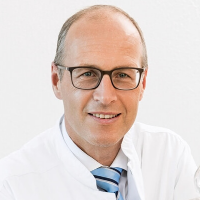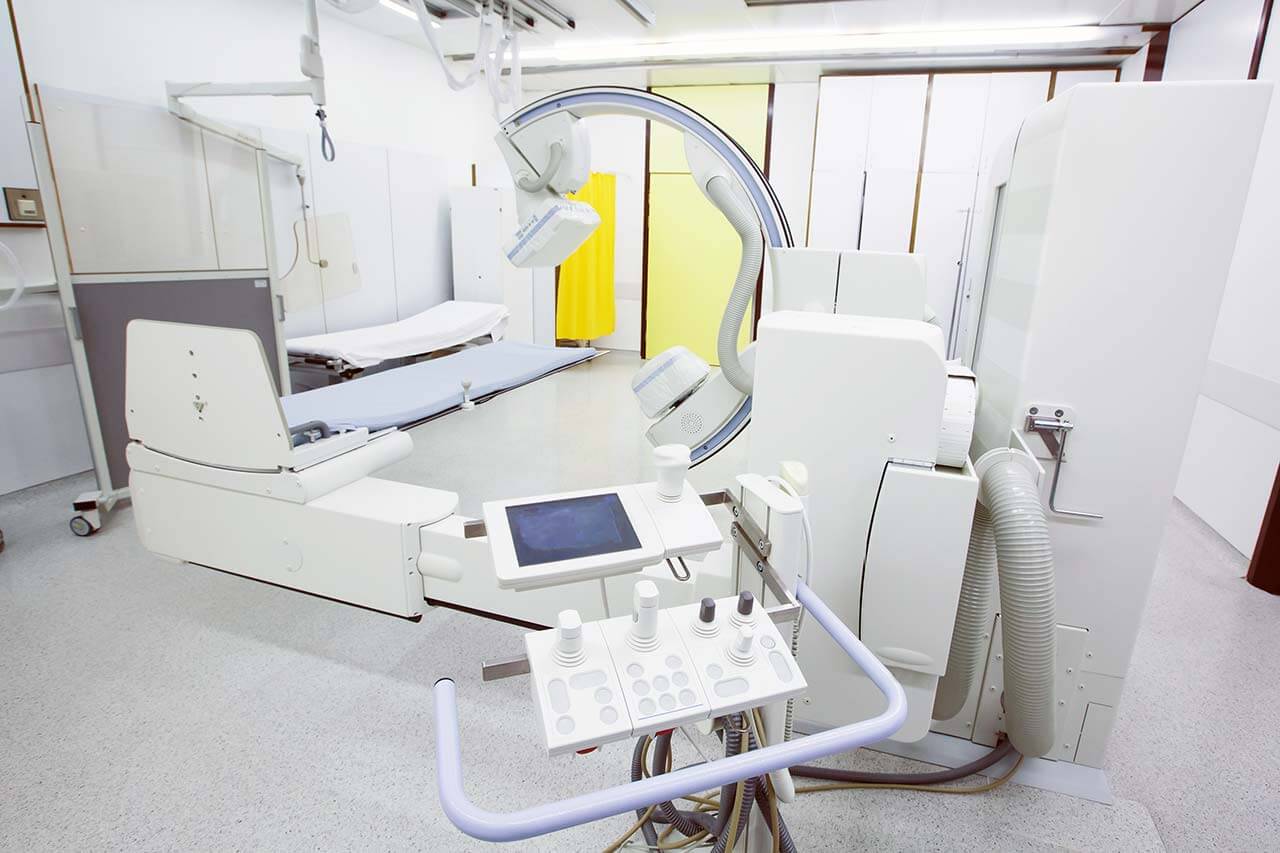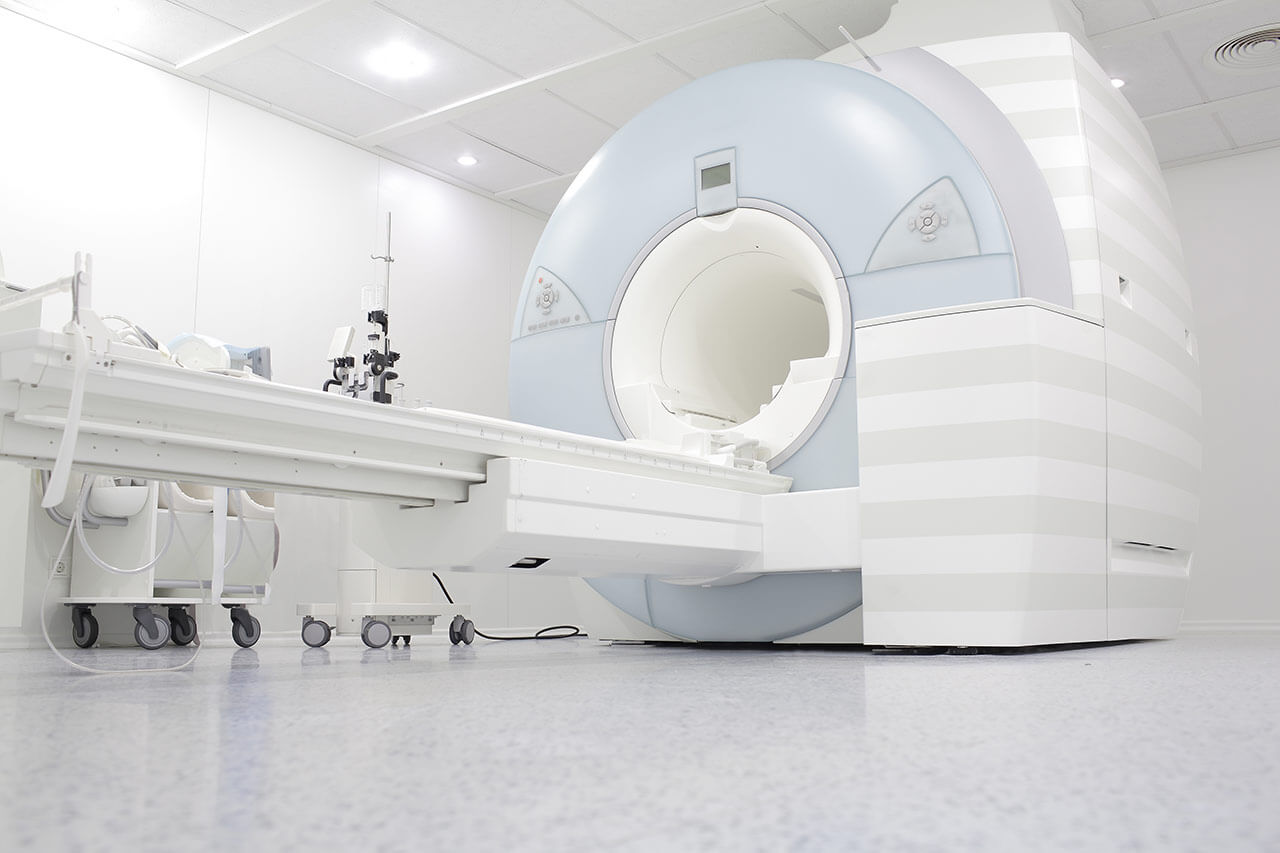
The program includes:
- Primary care visit
- history taking
- general physical examination
- x-ray/ MRI examination
- preoperative care
- arthroscopy
- full-board stay in hospital up to 4 days
- postoperative x-ray examination
- physiotherapeutic procedures
- cost of essential medicines
- nursing services
- further recommendations
Required documents
- Medical records
- X-ray examination, MRI/CT scan (if available)
Service
You may also book:
 BookingHealth Price from:
BookingHealth Price from:
About the department
According to the prestigious Focus magazine, the Department of Adult and Pediatric Orthopedics at the Hannover Medical School ranks among the top German medical facilities in the area of its specialization!
The department provides highly effective treatment for the full spectrum of musculoskeletal diseases in patients of all age groups, including children. The medical facility is one of the largest and the most prestigious Orthopedic Centers in Germany. Here the patients can get top-class medical care in the following areas: spinal surgery, joint replacement surgery and reconstructive surgery, correction of musculoskeletal deformities, treatment of foot diseases, pediatric orthopedics and neuro-orthopedics. More than 40,000 patients undergo treatment in the department annually. Thanks to the high competence of doctors and the use of advanced conservative treatment methods, many patients, including those with complex clinical cases, manage to avoid surgery. If the patient requires surgery, the department's surgeons most often resort to minimally invasive techniques. The department is headed by Prof. Dr. med. Henning Windhagen.
The department has unique experience in joint replacement surgery. The high quality of medical care in the department is confirmed by the certification as the Maximum Care Endoprosthetics Center. During the operation, special attention is paid to the careful treatment of muscles and tendons. The department uses the most sparing surgical techniques, which are safe for the patient and guarantee minimal blood loss. The most popular operations in this area are knee and hip replacement surgeries. As of today, the department performs such operations using minimally invasive techniques, which involve surgical access through several small incisions. When performing the surgical procedure, the surgeon can see the image of the operating field on a large screen, in multiple zoom. The implantation of an artificial joint is performed under the guidance of progressive navigation systems. Such an approach allows the doctors to guarantee the most accurate positioning of the prosthesis, which determines the success of the operation. The service range in the field of joint replacement surgery also includes revision interventions to replace previously implanted prostheses. The operations of this kind are considered particularly difficult, but the department's specialists successfully cope with them.
The department is also an advanced center for conservative and surgical treatment of spinal diseases. Conservative treatment involves the use of all options to avoid surgery: drug therapy, physiotherapeutic procedures (for example, massage, electrotherapy), therapeutic exercises, treatment with modern corsets, etc. If conservative therapeutic methods do not give positive results, specialists consider the possibility of surgical treatment. The department uses the full range of modern surgical procedures, including stabilizing surgery in case of prolapse or displacement of intervertebral discs, surgery to replace intervertebral discs, surgery for spinal stenosis, spinal fractures, as well as surgery for severe forms of scoliosis and kyphosis. Most spinal surgeries are performed using minimally invasive techniques. In addition, the department's operating rooms are equipped with advanced surgical microscopes, neuromonitoring systems and other devices, which allow surgeons to carry out not only effective, but also the safest surgical treatment of spinal diseases.
Children with musculoskeletal diseases are treated by a specially trained team of orthopedists with extensive clinical experience. At the stage of treatment regimen planning, the specialists take into account not only the diagnosis and general condition of the child, but also his age, as well as the peculiarities of the development of the child's body at this age. The team of pediatric orthopedists treats more than 3,500 young outpatients every year. In addition, the department annually performs more than 800 operations for orthopedic and neuro-orthopedic diseases in children and adolescents. In especially complex clinical cases, specialists from partner clinics are involved (for example, from the Child Care Center Bremen, the Werner Otto Institut Hamburg).
The department's service range includes:
- Shoulder surgery
- Shoulder replacement surgery (for example, use of a reverse prosthesis, surface joint replacement)
- Joint replacement using anatomical techniques (implantation of a hemiprosthesis, total replacement surgery)
- Revision shoulder replacement surgery
- Rotator cuff repair
- Shoulder stabilization
- Acromioclavicular joint stabilization
- Surgery to treat shoulder impingement syndrome
- Treatment of calcifying shoulder tendinitis
- Knee surgery
- Cruciate ligament reconstruction
- Reconstruction or replacement of menisci
- Restoration of the cartilaginous lining of the joint (from cell therapy to the use of the HemiCAP technique)
- Patella stabilization
- Corrective osteotomy
- Implantation of a sliding prosthesis
- Total or partial knee replacement surgery
- Joint replacement surgery
- Knee and hip replacement surgery (including particularly severe cases)
- Revision replacement surgery and joint replacement surgery for infectious diseases
- Joint replacement surgery in case of cancers
- Joint replacement surgery in case of rheumatism, osteoporosis and necrosis
- Bone tissue transplantation
- Implantation of individually selected and custom-made prostheses
- Minimally invasive interventions on the hip and knee joints
- Operations using navigation systems
- Hip and pelvic surgery
- Treatment of hip impingement syndrome (with joint preservation)
- Bone and soft tissue surgery
- Corrective osteotomy of the femur and pelvic bones
- Treatment of femoral head necrosis
- Correction of musculoskeletal deformities
- Comprehensive corrections to eliminate deformities
- Bone elongation by the Ilizarov technique
- Orthopedic oncology
- Surgical treatment of bone tumors
- Joint replacement surgery in case of cancers
- Reconstruction techniques using biological materials
- Surgical treatment of bone metastases
- Surgical treatment of soft tissue sarcoma
- Treatment of benign tumors of soft tissues and bones
- Treatment of spinal diseases
- Conservative treatment of spinal diseases
- Drug therapy
- Physiotherapeutic procedures
- Therapeutic exercises
- Manual therapy
- Osteopathic therapy
- Treatment with corsets
- Surgical treatment of spinal diseases
- Intervertebral disc surgery
- Treatment of spinal stenosis
- Balloon kyphoplasty in osteoporosis
- Minimally invasive decompression techniques
- Intervertebral disc replacement
- Displaced vertebrae correction
- Placement of dynamic implants
- Scoliosis and kyphosis correction
- Treatment of diseases of the cervical spine
- Spinal infiltration/periradicular therapy (PRT)
- Surgical treatment of spinal fractures
- Conservative treatment of spinal diseases
- Foot surgery
- Correction of the posterior foot deformities
- Upper ankle cartilage reconstructive surgery
- Foot ligament reconstructive surgery
- Ankle replacement surgery
- Revision ankle replacement surgery (also in infections)
- Arthrodesis
- Soft tissue surgery
- Ankle arthroscopy
- Tendon transposition
- Treatment of Charcot foot
- Revision interventions
- Correction of the anterior foot deformities
- Hallux valgus and hallux rigidus correction
- Soft tissue surgery (tendon surgery)
- Arthrodesis
- Correction of the little toe
- Revision interventions
- Treatment of foot cancers
- Correction of the posterior foot deformities
- Pediatric orthopedics
- Treatment of flat feet combined with external clubfoot
- Correction of limb deformities
- Correction of skull deformities
- Surgery for growth disorders
- Treatment of Perthes disease
- Treatment of slipped capital femoral epiphysis
- Treatment of scoliosis
- Treatment of torticollis
- Treatment of hip dysplasia, hip dislocation
- Treatment of clubfoot
- Arthroscopic surgery
- Conservative therapy
- Neuro-orthopedics (treatment of orthopedic diseases developed due to the following diseases)
- Infantile cerebral palsy
- Spina bifida
- Arthrogryposis
- Hereditary syndromes
- Metabolic disorders
- Muscular dystrophy
- Spinal muscular atrophy
- Chromosomal abnormalities
- Other medical services
Curriculum vitae
From 1984 to 1991, Prof. Henning Windhagen studied medicine at the Philipps University of Marburg and the University of Bern (Switzerland). His doctoral thesis defense was followed by activities in the field of orthopedic surgery and biomechanical sciences at the Harvard Medical School in Boston, USA. Also, Dr. received scholarships from the Else Kröner Fresenius Foundation and Braun Foundation. After working as an Assistant Physician in the Department of Traumatology at the Humboldt University of Berlin and at the Charité Campus Virchow, Prof. Windhagen had his board certification in Orthopedics and became a Research Assistant in the Department of Orthopedics at the Hannover Medical School, where in 2001 he became an Associate Professor. In 2004, the doctor also received Venial Legendi in Biomedical Engineering (Hannover University). Since 2006, Windhagen has been Full Professor of Orthopedics, Head of the Department of Adult and Pediatric Orthopedics at the Hannover Medical School, as well as Head of the Laboratory for Biomechanics and Biomaterials. In 2007, Prof. Windhagen became Co-Head of the CrossBIT Research Center (Center for Biomaterials, Implant Immunology and Medical Technologies). In 2008, he headed OrthoGO (Institute of Orthopedic Analysis and Analysis of Movements). Since 2012, Prof. Windhagen has been a Board Member of the Center for Implant Research and Development of Lower Saxony (NIFE).
Main Research Focuses
- Implant research.
- Computerized surgery (navigation surgery).
- Biomechanics.
- Study of growth factors and cytokines.
- Degradable biomaterials in osteonecrosis.
- Knee and hip surgery (especially endoprosthetics and revision surgery to replace joints).
Membership in the Professional Societies
- 2008 - 2011 Treasurer of the German Society for Reconstructive Extremity Surgery (A.S.A.M.I).
- 2009 - 2011 Deputy Head of the Conference of Ordinary Professors in Orthopedics.
- 2010 - 2012 Vice President of the Section of Fundamental Research of the German Society for Orthopedics and Orthopedic Surgery.
- 2014 Elected as the President of the German Society for Orthopedics and Orthopedic Surgery (DGOOC) and the German Society of Orthopedics and Traumatology (DGOU).
- President of the Association of Orthopedic Research (AFOR) and Secretary of the German Society for Endoprosthetics.
Awards and Honors
- 1990 Poster Prize of the German Society of Traumatology (DGU).
- 1999 - 1990 Poster Prize, Section for Fundamental Research of the German Society for Orthopedics and Traumatology (DGOT).
- 1999 Innovation Contest for Promotion of Medical Technologies, Financing Program of the Federal Ministry of Education and Research (BMBF).
- 2000 Innovation Contest for Promotion of Medical Technologies, Financing Program of the Federal Ministry of Education and Research (BMBF).
Photo of the doctor: (c) Medizinische Hochschule Hannover (MHH)
About hospital
The Hannover Medical School has the status of a leading German medical facility. The advanced medical technologies, highly qualified specialists, as well as productive research activities form a solid basis for top-class medical service of the world standard. The hospital is proud of its outstanding achievements in the treatment of cancer, diseases of the lung, heart, kidney, liver and metabolic disorders, as well as surgical diseases.
The medical facility diagnoses and treats more than 63,000 inpatients and about 470,000 outpatients annally. These indicators are growing steadily, which indicates the reputability and prestige of the hospital in the European medical arena.
For decades, the hospital has been a pioneer in transplantation medicine and is one of the leading centers of this specialization in the world. It performs about 400 transplantations of solid organs annually. Also, the hospital has performed over 130 bone marrow transplantations. In addition, the hospital ranks among the world leaders in cochlear implantation for the treatment of hearing loss.
Much attention is paid to interdisciplinary cooperation. Since 2016, the hospital has the largest certified Cancer Center in the Federal State of Lower Saxony, which provides comprehensive, multidisciplinary medical care in accordance with the standardized protocols of cancer societies.
The specialists of the hospital offer patients not only modern treatment of the highest quality, but also attentive care, sympathetic attitude to the patient's problems and understanding of his individual needs. Thus, the patient can be sure that his health is in the safe hands of highly qualified doctors.
Photo: (c) depositphotos
Accommodation in hospital
Patients rooms
The patients of the Hannover Medical School live in comfortable and cozy rooms. Each patent room has an ensuite bathroom with shower and toilet. A standard patient room includes an automatically adjustable bed with an orthopedic mattress, a bedside table, a wardrobe, a TV and a telephone. You can use TV, telephone and Internet using a special chip card, which can be purchased at self-service terminals or ordered at the service counter. The hospital allows the patients to use mobile phones, with the exception of intensive care units, some departments and diagnostic rooms.
If desired, the patient can stay in an enhanced-comfort room. Such rooms are distinguished by a more sophisticated design, and are additionally equipped with upholstered furniture, a safe for storing valuables and a mini fridge.
Meals and Menus
The patient and the accompanying person are offered delicious and balanced three meals a day. Breakfast and dinner are served buffet style and lunch can be chosen from three set menus. All dishes are prepared by professional chefs using the freshest ingredients available in the region.
If you are on a specific diet for some reason, you will be offered an individual menu. Please inform the medical staff about your dietary preferences prior to the treatment.
Further details
Standard rooms include:
Religion
There is a chapel on the territory of the hospital, where Christian and Catholic services are regularly held. The hospital provides a prayer room for followers of Islam, which is open for visits 24 hours a day.
Religious services can also be provided upon request.
Accompanying person
During an inpatient program, an accompanying person can stay with you in the patient room or in a hotel of your choice.
Hotel
During an outpatient program, you can stay in a hotel of your choice. The managers will help you choose the most suitable options.




